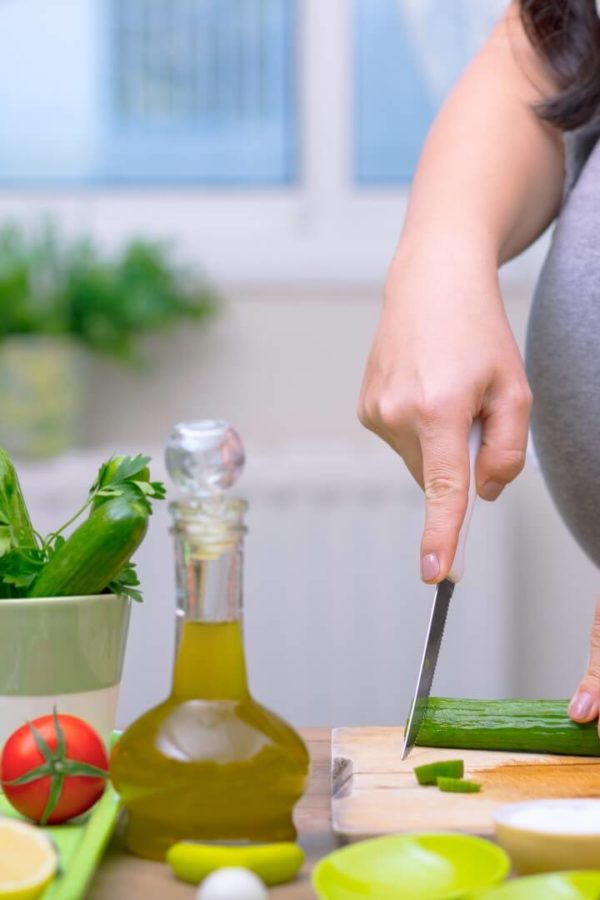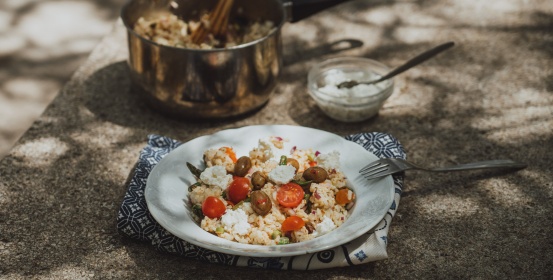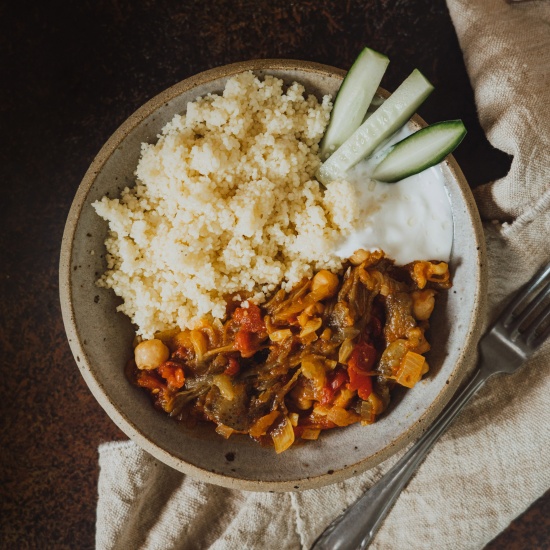It is justified to describe pregnancy as a change of state. Each woman has a different experience, and some women tolerate it much better than others, while most women feel fatigue, weakness, irritability, and even heartburn and constipation during this time of sweet anticipation. All of those things are (unfortunately) perfectly normal and they are part of almost every pregnancy.
Constipation in pregnancy is fairly common
Constipation is a common part of pregnancy. As the second most common problem during the period of sweet anticipation, it comes right after fatigue. According to the latest estimations, between 11 and 28 percent of pregnant women experience problems, such as irregular bowel movement or difficult defecation. Constipation in pregnancy occurs due to physiological or anatomic changes in the digestive tract. For example, an increased level of progesterone and a reduced level of motilin slow down the movement of food through the intestines and increase the water absorption in the intestines, which dries out the stool. The movement of food is additionally slowed down in high pregnancy due to an enlarged uterus. Reduced activity and an increased need for minerals, primarily iron, contribute to the occurrence of constipation in pregnancy.
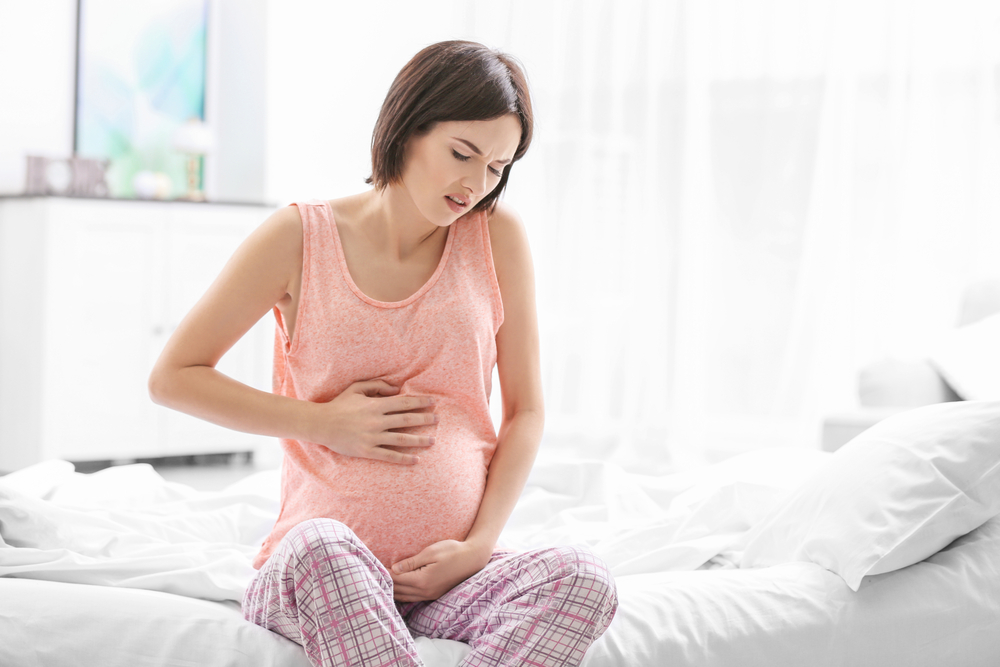
Problems with constipation can have an extremely negative effect on everyday life, but, fortunately, they rarely cause serious health complications.
The first step in treating constipation is increasing your fibre and fluid intake along with moderate daily exercise.
How to help yourself in case of constipation in pregnancy?
In most cases constipation in pregnancy can be relieved or entirely prevented by a quality, balanced and diverse diet – rich in fiber, of course. Foodstuffs with very high fiber content are recommended, such as:
- legumes
- oat flakes
- whole-grain cereals
- fruit (careful with the bananas!) and
- vegetables
Excellent allies in the fight against constipation are primarily apples, pears, prunes, apricots, pumpkins, and flax seeds. On the other hand, it is important to reduce intake of:
- very fatty food
- white flour products
- rice
- desserts
- very sweet drinks
Also, it is extremely important to hydrate enough in order to have healthy digestion. The experts recommend at least 2 liters of liquid per day, preferably water or juice with reduced sugar content. Also, it is recommended to exercise during pregnancy – of course, in accordance with the pregnant woman’s abilities. A pregnant woman should, if possible, plan her bowel movements at least partially and thereby avoid inadvertent stool withholding.
(1)Safety and effectiveness assessment of Donat natural mineral water with regard to bowel function; randomised, placebo-controlled, double-blind clinical trial – the data has been published in the European Journal of Nutrition; 2015.
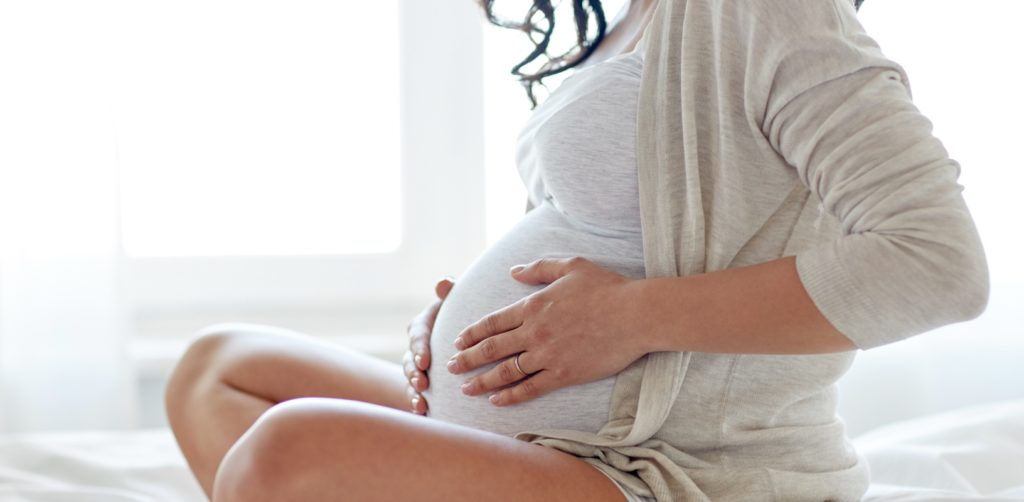
What about laxatives during pregnancy?
If changes in dietary habits and lifestyle do not help, the second option is to use laxatives. Even though there is no direct scientific evidence about a possible negative impact on the development of the fetus, experts still advise pregnant women to use laxatives only occasionally or in shorter time intervals.
Donat is a completely natural osmotic laxative
Drinking 0,5 l of warm Donat natural mineral water per day (0,3 l in the morning and 0,2 l before dinner) helps in prevention of constipation and stimulation of a slow digestive system and is therefore recommended during pregnancy, too.
Donat has been renowned for its beneficial effect on digestion for generations, and in the past few years its effectiveness has also been scientifically proven in a clinical study. Besides being entirely natural, it effectively stimulates digestion due to an above-average mineral content – primarily sulphate and magnesium. Also, the body cannot get used to it, so it does not cause addiction, nor it has other side-effects. The only unpleasant side-effect is diarrhea which, if not treated, can lead to dehydration or an electrolyte imbalance. That is why it is extremely important to know how to properly and effectively use it during pregnancy. You still don’t know that? Don’t worry!
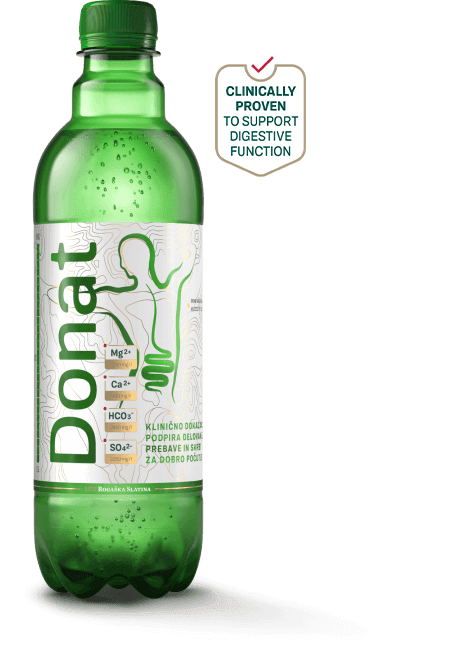
Listen to your body
During pregnancy you will surely surround yourself with a lot of priceless advice. When it is about challenges that this magical period brings, never forget that it is extremely important to listen to your body. What suits you the best, after which food do you feel the best, which habits or food cause you problems? Every pregnancy is a unique experience, and the list of foodstuffs and habits that help you keep your health and well-being is unique too. Therefore, it is not unusual if you find some of the advice you have not read above helpful.
However: if despite our advice your digestion still has not improved or it accelerated just a bit, make sure to consult a doctor who will recommend appropriate dietary supplements or help you in some other way.
Frequently Asked Questions
1. Is constipation in pregnancy a normal occurrence?
Definitely, since constipation is the second most common problem in pregnant women, right after nausea. Between 11 and 38 percent of all pregnant women experience constipation.
2. Why does constipation occur during pregnancy?
Constipation in pregnancy is caused by physiological and anatomic changes in the digestive tract. A raised level of progesterone and a lowered level of motilin slow down the movement of the food through the intestines and increase the absorption of water in the intestines which dries out the stool and additionally slows down its excretion. Less activity during pregnancy and an increased need for minerals, such as iron, can additionally contribute to the occurrence of constipation. When a woman is heavily pregnant, the passage of stool can be slowed down due to an increased uterus.
3. How to get rid of constipation in pregnancy?
In most cases, constipation can be alleviated and prevented with a quality, balanced and diverse diet. When fighting constipation, your best allies are fiber-rich foodstuffs, such as apples, pears, prunes, apricots, pumpkins, and flax seeds. Regular activity is also important. Another thing that is helpful is to plan when to go to the bathroom in order to prevent unconscious stool retention in the bowels.
4. Is the use of laxatives in pregnancy harmful for the mother or the fetus?
Even though there is no evidence that the use of laxatives during pregnancy has a harmful effect on the development of the fetus, it is recommended to use osmotic laxatives only for a short time or occasionally.
5. What to do if a change in lifestyle does not help solve the problem of constipation in pregnancy?
If you suffer from slow digestion or constipation in spite of a balanced diet, activity, and other healthy habits, your doctor should recommend an appropriate dietary supplement that will help you best.
Choose chapter:
